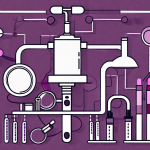Participating in a clinical trial can be a valuable opportunity to access new treatments and contribute to medical research. However, it’s crucial to advocate for yourself and be a self-advocate throughout the process to ensure your needs and patient rights are respected, despite potential healthcare barriers such as gender bias or medical gaslighting.
Here are five key advocacy strategies to advocate for yourself in clinical trials and improve your patient experiences:
- Educate Yourself on the Clinical Trial Process: Learn about the phases of clinical trials, from Phase I to Phase IV, and understand what each phase entails. Access resources and engage with patient advocacy groups to stay informed about health disparities and the healthcare system.
- Ask Questions and Clarify Any Doubts: During doctor appointments, ask about your health diagnosis, potential side effects, and treatment outcomes. Utilizing effective communication skills can lead to personalized patient care and build a trusting relationship with your healthcare provider.
- Understand the Risks and Benefits: Be aware of the potential risks, such as side effects, chronic pain, and the possibility of receiving a placebo, as well as the benefits, like access to new therapies and comprehensive medical monitoring.
- Be Honest About Your Medical History and Current Medications: Transparency with your healthcare providers about your medical history and current medications ensures accurate diagnosis and effective treatment. Share your family history, chronic conditions, and any existing chronic pain management strategies.
- Negotiate for Better Compensation and Benefits: Understand the compensation structures and healthcare policies related to clinical trials. Prepare to articulate your needs and negotiate for fair compensation and benefits, considering health equity and access to care.
By following these advocacy strategies, you can advocate for yourself effectively and navigate the clinical trial process with confidence, despite potential diagnosis delays or healthcare decisions influenced by the US healthcare system.
Key Takeaways:
1. Educate Yourself on the Clinical Trial Process and Health Education

Understanding the clinical trial process involves learning about the stages:
- Phase I
- Phase II
- Phase III
- Phase IV
. Each phase assesses treatment safety and efficacy.
Patients can educate themselves by reading research studies and accessing their medical records, ensuring they are informed patients in the healthcare system.
Engaging with patient advocacy resources, such as the Arthritis Foundation or the LGBTQIA+ community, provides additional support and guidance on navigating the healthcare community.
2. Ask Questions and Clarify Any Doubts
Asking questions and clarifying doubts during doctor appointments enables patients to understand their health concerns and treatment options.
Patients should ask about the following during their medical visits:
- Diagnosis reasons, considering possible gender norms and biases
- Medication side effects
- Treatment outcomes
Clear communication can lead to personalized care and build a trusting doctor-patient relationship, which is crucial in addressing potential medical gaslighting and health concerns.
3. Understand the Risks and Benefits
Understanding the risks and benefits of clinical trials helps patients make informed treatment decisions, especially for those struggling with chronic conditions or seeking a second opinion.
Risks include potential side effects and receiving a placebo, while benefits offer access to new therapies and medical monitoring.
Patients with rare diseases or health disparities may gain unique treatment options through clinical trials, influencing their health outcomes and patient empowerment.
4. Be Honest About Your Medical History and Current Medications
Honesty about your medical history and current medications ensures accurate diagnosis and treatment by healthcare providers.
Sharing chronic conditions and family health history helps doctors suggest appropriate screenings and treatments.
Transparency leads to trust and personalized healthcare, improving health outcomes and addressing potential health disparities.
5. Negotiate for Better Compensation and Benefits

Negotiating for better compensation and benefits in clinical trials ensures participants’ rights and supports their healthcare access.
Participants should understand healthcare policies, insurance limitations, and compensation structures to negotiate effectively.
Preparation, clear articulation of needs, and knowledge of comparable compensation can improve negotiation outcomes.
Informed negotiation can lead to agreements that respect patient rights and enhance the clinical trial experience, crucial for achieving health equity.
How to Find and Evaluate Clinical Trials and Access to Care
Finding clinical trials involves searching online registries such as ClinicalTrials.gov, consulting healthcare providers, and joining patient support groups to discover relevant studies.
Evaluating clinical trials includes reviewing trial phases, health outcomes, and statistical significance, ensuring alignment with personal health needs and the opportunity for women, men, and the LGBTQIA+ community to participate.
What Are the Different Phases of Clinical Trials?
Clinical trials have four phases: Phase I, Phase II, Phase III, and Phase IV.
-
Phase I tests safety and dosage in a small group of healthy volunteers, including diverse demographics to understand potential gender bias.
-
Phase II evaluates effectiveness and side effects in participants with the condition.
-
Phase III compares the new treatment to standard therapies in a larger, diverse group.
-
Phase IV monitors long-term performance after the treatment is marketed.
What Are the Common Inclusion and Exclusion Criteria for Clinical Trials and Patient Empowerment?
Inclusion criteria in clinical trials specify participant characteristics that qualify individuals to join the trial, such as age, stage of disease, or specific health conditions.
Exclusion criteria identify characteristics that disqualify individuals from participating, like pre-existing conditions or concurrent treatments that could interfere with study results.
Inclusion and exclusion criteria ensure the safety and relevance of clinical trial outcomes, promoting health equity and access to care for all participants.
What Questions Should You Ask Before Participating in a Clinical Trial?

Before participating in a clinical trial, patients should ask the following questions:
- What is the purpose of the clinical trial?
- What are the trial procedures and duration?
- What are the potential risks and benefits?
- What are the criteria for inclusion and exclusion?
- How will participation impact daily life?
These questions help patients understand the trial’s design, commitment, and potential impact on their health, fostering patient empowerment and informed healthcare decisions.
What Are the Possible Risks and Benefits of Participating in a Clinical Trial?
Clinical trials assess new medical treatments’ safety and effectiveness. Participating in clinical trials offers potential benefits and risks.
Benefits include access to cutting-edge therapies and contributing to medical research.
Risks involve potential side effects, unknown treatment outcomes, and the challenge of addressing chronic pain effectively.
Participants must evaluate these factors to make informed decisions, considering the healthcare system’s impact on their access to care and treatment options.
How Can You Advocate for Yourself During the Clinical Trial Process?
Advocating for yourself during the clinical trial process involves voicing concerns, asking questions, and understanding patient rights, especially when facing healthcare barriers or seeking a diagnosis.
Keep a symptom journal to communicate treatment responses with healthcare providers.
Open communication with your healthcare team ensures your needs are met and helps achieve better health outcomes, particularly when managing chronic pain or considering a second opinion.
Frequently Asked Questions
What are the five ways to advocate for yourself in clinical trials?

The five ways to advocate for yourself in clinical trials are: educating yourself, communicating effectively, being proactive, building a support system, and knowing your rights and responsibilities.
Why is it important to educate yourself about clinical trials?
Educating yourself about clinical trials helps you make informed decisions about whether to participate, understand the potential risks and benefits, and ask important questions during the process, especially if you’re a part of the LGBTQIA+ community or facing health disparities.
How can effective communication benefit you in a clinical trial?
Effective communication with your healthcare team and research staff can help ensure that your needs and concerns are addressed and that you are fully informed throughout the trial, facilitating a supportive relationship with your doctor.
What does it mean to be proactive in a clinical trial?
Being proactive in a clinical trial means taking an active role in your healthcare and research experience. This can include asking questions, tracking your symptoms and medication using a symptom journal, and staying informed about the trial’s progress, which is essential for managing chronic conditions and ensuring effective pain management.
How can building a support system benefit you in a clinical trial?
Having a support system, whether it be friends, family, or a support group, can help provide emotional and practical support throughout the clinical trial process. They can also assist you in understanding and navigating the trial, mitigating potential healthcare barriers and fostering health awareness.
What are your rights and responsibilities as a participant in a clinical trial?
As a participant in a clinical trial, you have the right to be fully informed about the trial, to ask questions, to withdraw your participation at any time, and to have your safety and well-being protected. Your responsibilities include following the trial protocol, reporting any changes in your health, and attending all required appointments and procedures.





